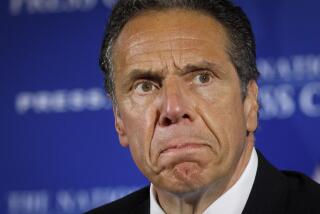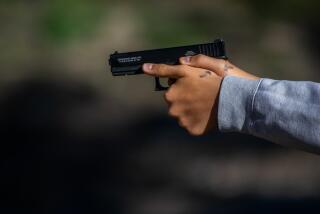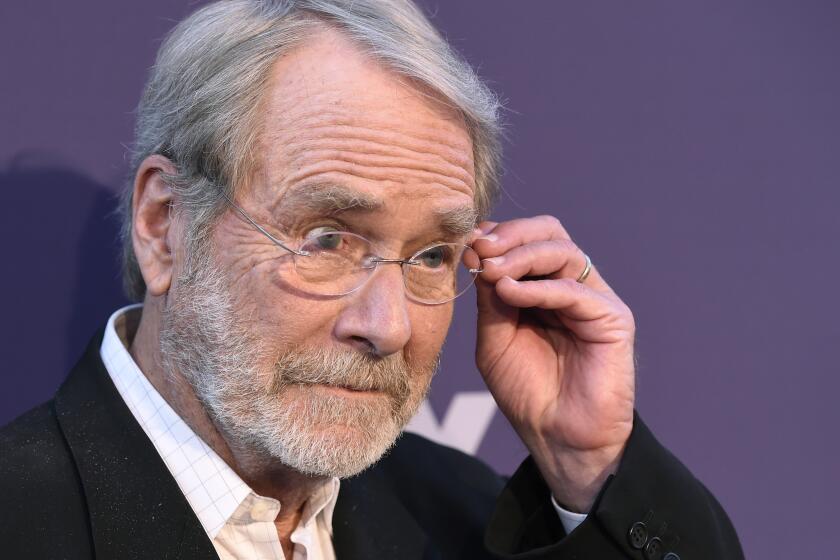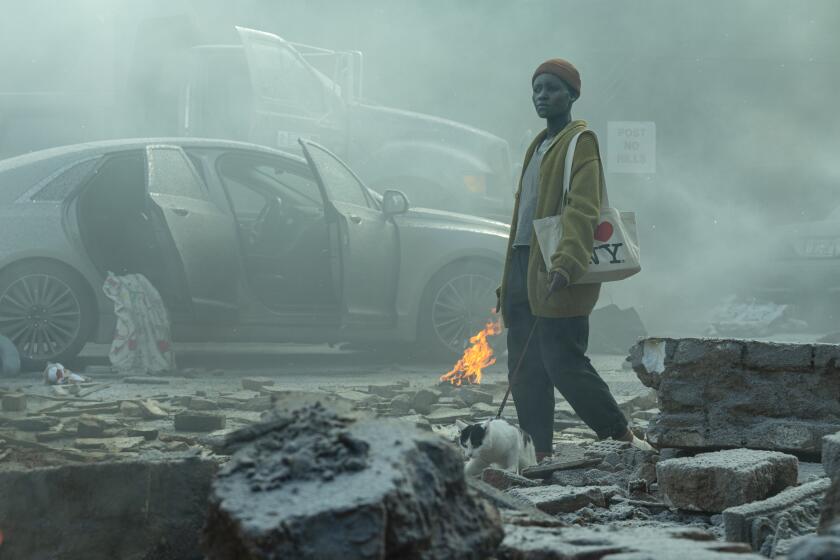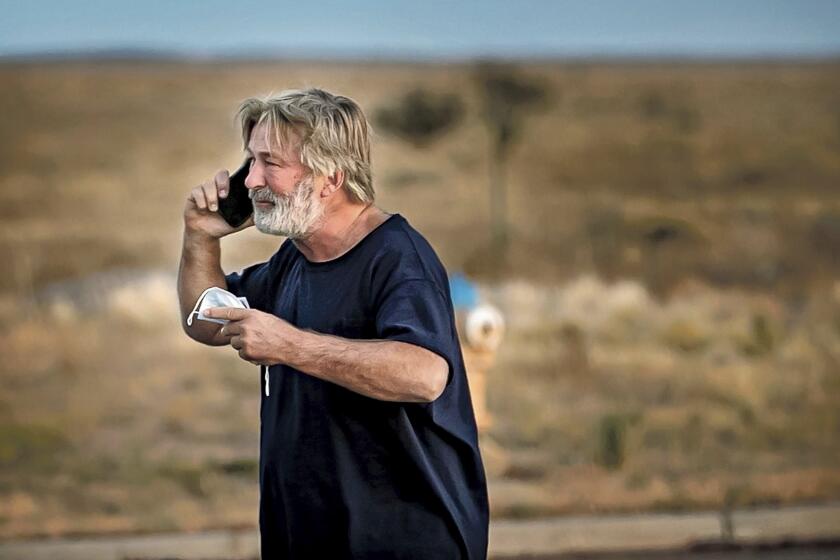Review: ‘The Price of Freedom’ takes aim at the NRA’s rise to political power
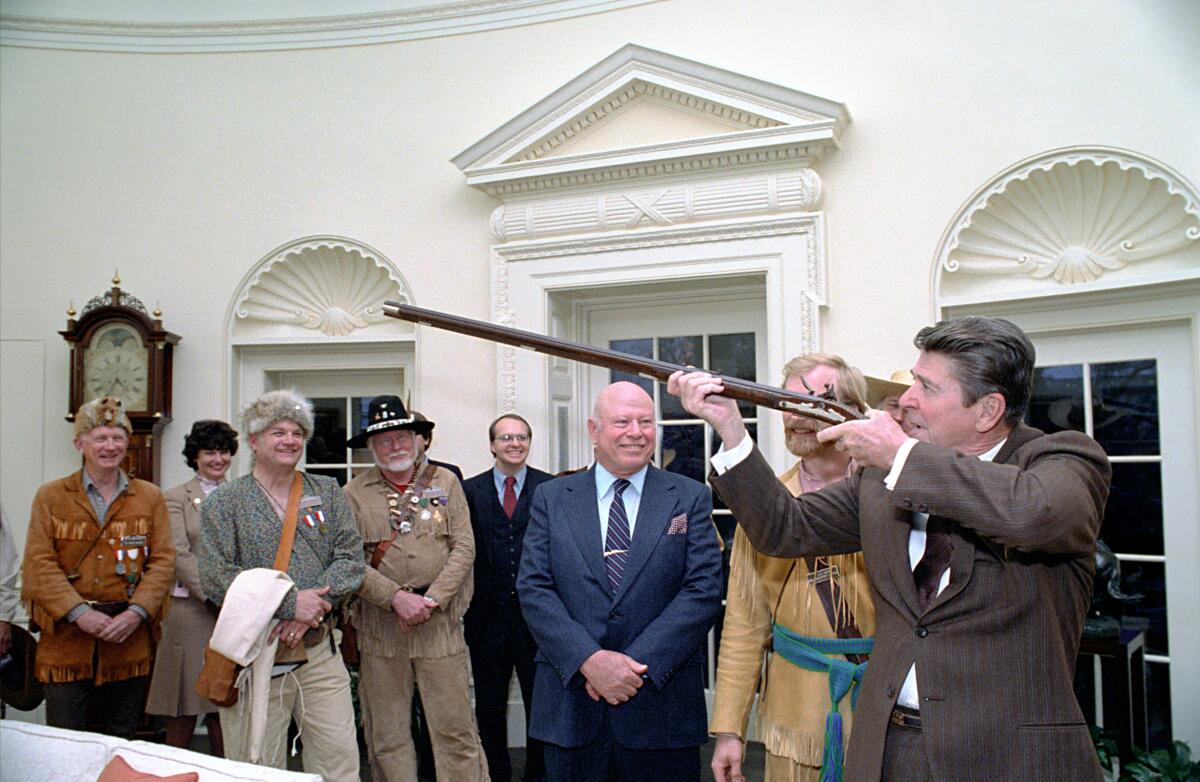
The Times is committed to reviewing theatrical film releases during the COVID-19 pandemic. Because moviegoing carries risks during this time, we remind readers to follow health and safety guidelines as outlined by the Centers for Disease Control and Prevention and local health officials.
Clear-eyed, compassionate and compelling, the documentary “The Price of Freedom” efficiently unpacks and debunks the myths it posits the National Rifle Assn. of America has deployed to further its all-guns-all-the-time agenda and foster a culture war.
Director Judd Ehrlich (“Magic Camp,” “Keepers of the Game”) has assembled a rich, articulate array of voices to weigh in on the National Rifle Assn.’s outsize political influence and weaponization of gun ownership.
Academics and historians, gun control activists and advocates, and such NRA-averse politicians as former President Clinton, Connecticut Sen. Chris Murphy, Colorado Rep. Jason Crow, Georgia Rep. Lucy McBath (whose late son was the victim of gun violence) and ex-Arizona Rep. Gabrielle Giffords (who suffered traumatic brain injury in a 2011 assassination attempt), all help Ehrlich outline how the NRA went from a nonpartisan group aimed at instructing hunters, sportsmen and marksmen to becoming one of our nation’s leading — and most deep-pocketed — lobbying organizations.
On the flip side, Ehrlich also interviews at length NRA board member and ex-NRA President David Keene, who remains a stalwart advocate for gun rights and their associated “freedoms.”
It’s remarkable to learn that the NRA, which maintains an apparent stranglehold on Congress’ ability to pass meaningful gun safety legislation, supported the National Firearms Act of 1934 and the Gun Control Act of 1968.
But with the mid-1970s’ advent of uncompromising NRA lobbyist Harlon Carter (a convicted murder whose conviction was later overturned), who would become NRA chief in 1977, the group took a sharper turn right, aligning itself with conservative politicos, wrapped itself in so-called 2nd Amendment rights and all things “patriotic,” and dug in against any and all gun control measures.
Enter former movie gunslinger Ronald Reagan as U.S. president in 1981. In him, the NRA found its ideal proxy for their law-and-order messaging blitz. The die was cast for decades to come.
Flash forward to the last presidential administration and, as current NRA Chief Executive Wayne LaPierre is proudly seen saying here, “Without us, we wouldn’t have had President Trump.”
In addition, the movie vitally reminds us that for all of the NRA’s shrewd, red-white-and-blue branding efforts — dubbing permit-free, open-carry gun laws “Constitutional Carry” and cloaking its mission in “What would the Founding Fathers do?” rhetoric, among other things — a plethora of widely supported gun control laws were on the books from the late 1700s through the 1800s.
The racial component that has propelled or infused some of the NRA’s efforts (“People of color are paying the price for the freedoms the NRA are talking about,” notes one pundit here) as well as a look back at vigilante Bernhard Goetz, who in 1984 notoriously shot four Black men on a New York City subway train, are also deftly woven into the movie’s narrative.
But the film’s greatest strength comes from revisiting the more recent assault-rifle mass killings including school shootings in Newtown, Conn., and Parkland, Fla., and the 2012 movie theater massacre in Aurora, Colo. The enormously inspiring way that children and parents alike were galvanized by these tragedies to rise up against the tide of gun violence and, in particular, the NRA’s intransigence toward any common-sense gun restrictions, are powerfully recounted here.
Testimony from gun safety activists Fred Guttenberg and Nicole Hockley, who both lost children in school killing sprees, is especially heartrending.
Solid archival footage fills in or underscores this often infuriating yet essential portrait of one of America’s thorniest and divisive issues.
'The Price of Freedom'
Not rated
Running time: 1 hour, 35 minutes
Playing: Starts July 7 in general release
More to Read
Only good movies
Get the Indie Focus newsletter, Mark Olsen's weekly guide to the world of cinema.
You may occasionally receive promotional content from the Los Angeles Times.

